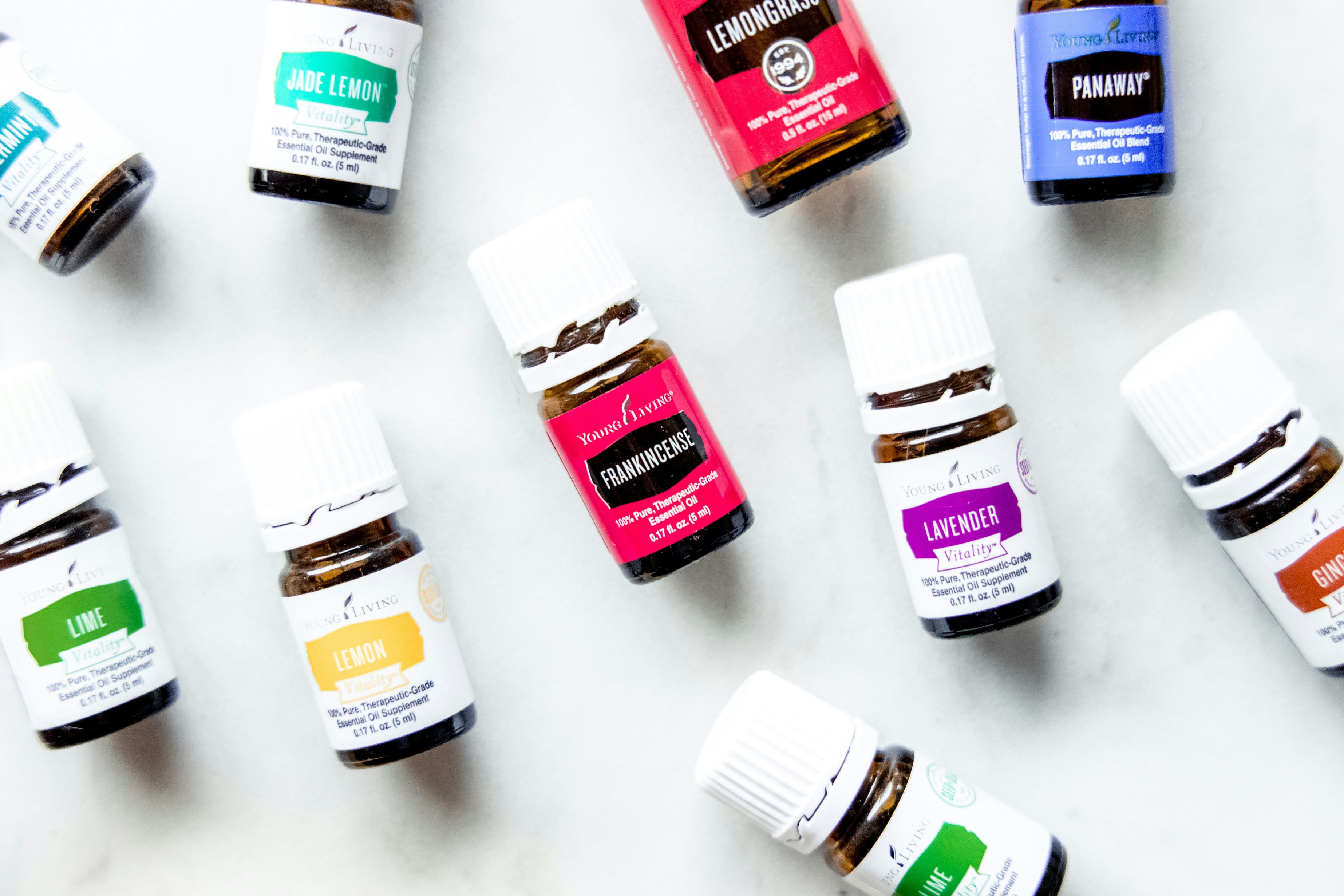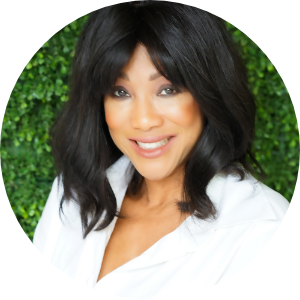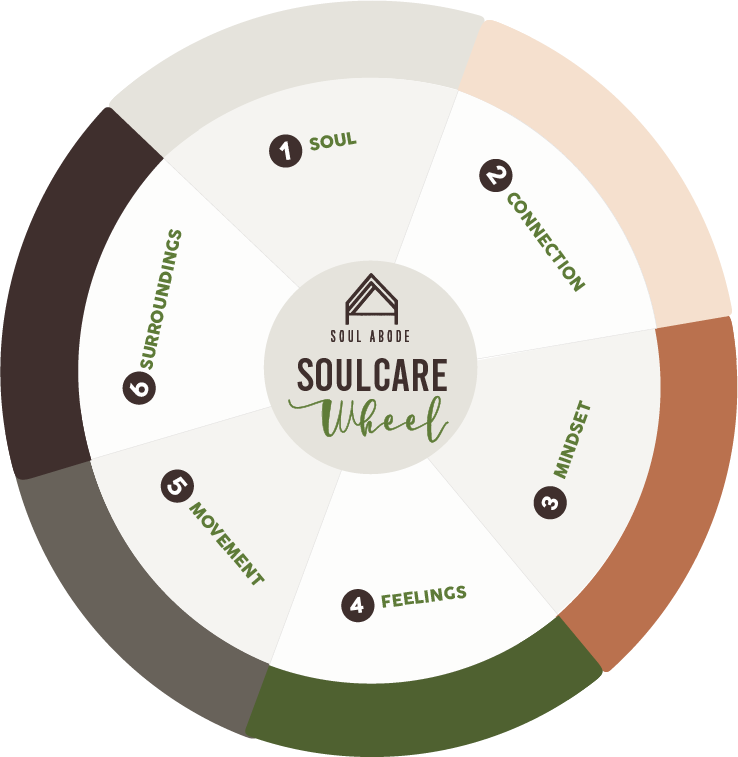Using Aromatherapy For Emotional Regulation

Emotions play a significant role in our daily lives, influencing our thoughts, behaviors, and overall well-being. Aromatherapy, the practice of using essential oils to promote holistic healing, has gained popularity for its ability to aid in emotional regulation. The therapeutic scents of essential oils have the potential to positively impact mood and emotions, offering a natural and calming solution for emotional balance.
One of my absolute favorite tools to use when doing emotional inner work are essential oils, in particular, the Young Living essential oils and blends. I have tried so many different essential oil brands but honestly, I can say, with my hand on my heart, you can’t beat the Young Living blends, especially for doing emotional processing and trauma work as well as for your overall mental health and emotional well-being.
How Aromatherapy Works
Essential oils are highly concentrated plant extracts that capture the essence and fragrance of various botanicals. When inhaled or applied to the skin, these oils interact with the limbic system, the part of the brain responsible for emotions and memories. The aromatic compounds in essential oils can trigger responses in the brain that help regulate emotions, reduce stress, and promote relaxation.
Essential Oils for Health & Emotional Wellbeing
Essential oils have been used for centuries for treating physical conditions, making products such as creams, ointments, toothpaste, perfume, beauty and self-care rituals of all sorts.
The use of essential oils for mental health is only now getting particularly popular, with an increasing number of people turning to them for stress relief, mental fatigue, anxiety, depression, and their overall emotional health and wellbeing . I feel this is also due to the fact that they are natural remedies and people are looking to move away from being dependent on medications that often have lots of negative side effects. People are looking for healthier and more natural solutions even for medical conditions.
From aromatherapy and diffusing, internal use to topical application, there are various ways to incorporate essential oils into your self-care routine and, what I want to focus on with this blog, is healing emotional wounds. When using essential oils for emotions, you can use these oils topically on the chakra centers, on specific acupressure or acupuncture points or simply where you intuitively feel stress (neck and shoulder, stomach, back, temple etc. )
Alternatively you can create a tailor-made massage blend for your needs, which is often diluted with a base oil, and use it daily after your shower.
Or the way I personally do it, which feel is the easiest and I’ve also found it to be the most powerful when doing the inner emotional works is to simply place one drop on the palm of your hands (make sure the oils are safe to be used topically – I’m referring to the blends below which I know it’s safe to be used this way), rub your hands together and simply take a few minutes to do some deep breathing while connecting to the essence or I should say the spirit of the oil and set your intention.
Essential Oil Safety
It is important to use essential oils safely when incorporating them into your self-care routine as well as for your emotional health. Always read the label and check if the oil is suitable for internal, topical or aromatherapy use. Start out with a small dilution rate, especially if you have sensitive skin. If you’re not sure and want to be really careful, never put essential oils directly onto your skin without diluting them in a carrier oil such as jojoba or coconut oil first. Furthermore, it’s always best to test on a small patch of skin before applying widely over larger areas of the body. When diffusing, make sure you don’t leave them on constantly for more than an hour at a time and never leave children unattended with essential oils or near an essential oil diffuser. Lastly, make sure to store your essential oils away from direct sunlight and in a cool dark place as this will help preserve their therapeutic properties longer.
How Essential Oils Work with the Brain
Our sense of smell is the only sense that is directly linked to the limbic system part of the brain, including the amygdala and the hippocampus. Once inhaled, essential oils work by targeting the limbic system, a part of the brain that plays a key role in our emotions and behavior, hence why it’s often called the “emotional brain”. This system is responsible for processing emotions, experiences and scents. It can impact our feelings in both positive or negative ways depending on the scent we inhale and our association with that scent. This is why essential oils are so powerful when it comes to using them for emotional release.
In order to access and release emotional trauma, we must stimulate the amygdala. One way to do this is through the sense of smell. Using certain essential oils for emotional healing can help tremendously.
Smell is the only one of our five senses that is directly linked to the lobe of the brain that houses our emotions and is shown to have a direct effect on the limbic system. Along with all positive emotions, negative emotions such as fear, anger, depression, and anxiety originate from this area.
Popular Essential Oils for Emotional Regulation
To harness the emotional benefits of essential oils, consider incorporating the following oils into your routine:
LAVENDER OIL
Lavender oil is renowned for its versatility in emotional support. It can promote relaxation, reduce stress, and improve overall mood.
BERGAMOT OIL
Bergamot oil has a bright and uplifting aroma that can alleviate feelings of sadness and anxiety. It's an excellent choice for promoting emotional well-being.
CHAMOMILE OIL
Chamomile oil is known for its calming effects. It can soothe emotional tension and promote relaxation, making it valuable for managing stress and anxiety.
FRANKINCENSE OIL
Frankincense oil has a grounding and calming influence. It can help quiet the mind and reduce feelings of restlessness or overwhelm.
YLANG-YLANG OIL
Ylang-ylang oil is effective in managing anxiety and promoting a sense of tranquility. It has a sweet and floral aroma that can lift the spirits.
ROSE OIL
Rose oil is often associated with love and emotional healing. It can soothe emotional wounds, promote self-love, and alleviate feelings of grief or loss.
Application of Aromatherapy
Aromatherapy can be practiced in various ways, including:
- Diffusion: Adding a few drops of essential oil to a diffuser can fill your space with therapeutic scents, creating a calming atmosphere.
- Topical Application: Diluting essential oils with a carrier oil and applying them to pulse points or areas of tension on the body can promote emotional well-being.
- Inhalation: Inhaling essential oils directly from the bottle or by adding a few drops to a tissue can provide quick relief from emotional distress.
By incorporating aromatherapy into your daily routine, you can harness the power of scent to regulate your emotions, promote relaxation, and enhance your overall emotional well-being.

Jennifer McDaniel
Jennifer McDaniel is a well being strategist, ICF accredited professional coach. She has 25+ years of experience as a professional speaker, corporate trainer and a learning development leader in the beauty, health and wellness space.
Read MoreRelated Articles

Sign-up for our newsletter
By clicking "sign up," you agree to receive emails from Soul Abode and accept our web terms of use and privacy and cookie policy.



